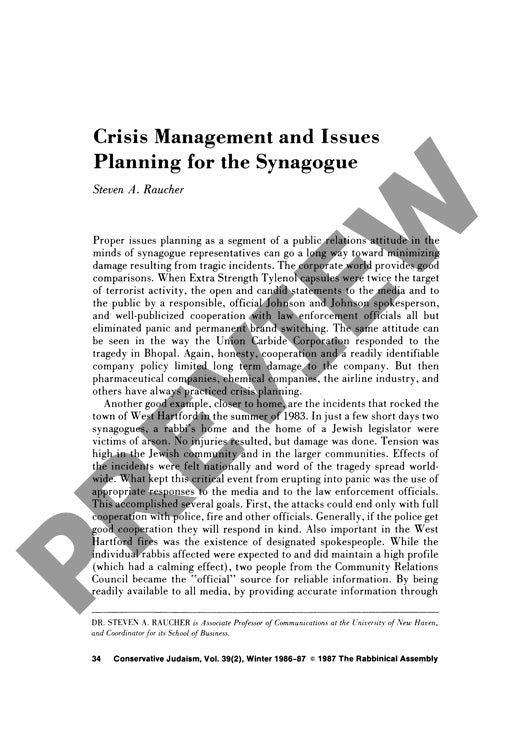Crisis Management and Issues Planning Fo
Couldn't load pickup availability
When arsonists targeted synagogues in West Hartford in 1983, the Jewish community's response highlighted a critical gap in crisis management for religious institutions. Drawing upon corporate public relations models like Johnson & Johnson's Tylenol case and Union Carbide's Bhopal tragedy, this research analyzes how religious organizations can adapt proven business strategies to protect their communities during emergencies. Through comparative analysis of corporate crisis responses and detailed examination of Jewish institutional media relations, the research demonstrates that effective crisis management requires a three-stage approach: pre-event planning, crisis-time behavior, and post-event assessment. Key findings indicate that designated spokespeople, coordinated messaging between internal and external communications, and proactive media relations significantly minimize institutional damage during crises. The West Hartford case study reveals that transparent communication with law enforcement, strategic use of community leaders, and sustained public engagement effectively prevented panic and maintained community cohesion. The evidence supports implementing systematic issues planning rather than reactive crisis management, emphasizing truthful, accessible communication with media and the establishment of predetermined protocols. These findings suggest that religious institutions can successfully adapt corporate public relations strategies to protect their communities and maintain public trust during adverse events.

More Information
-
Physical Description
-
Publication Information
Published 1986-1987
ISBN
-
Publication Credits
Steven Raucher

